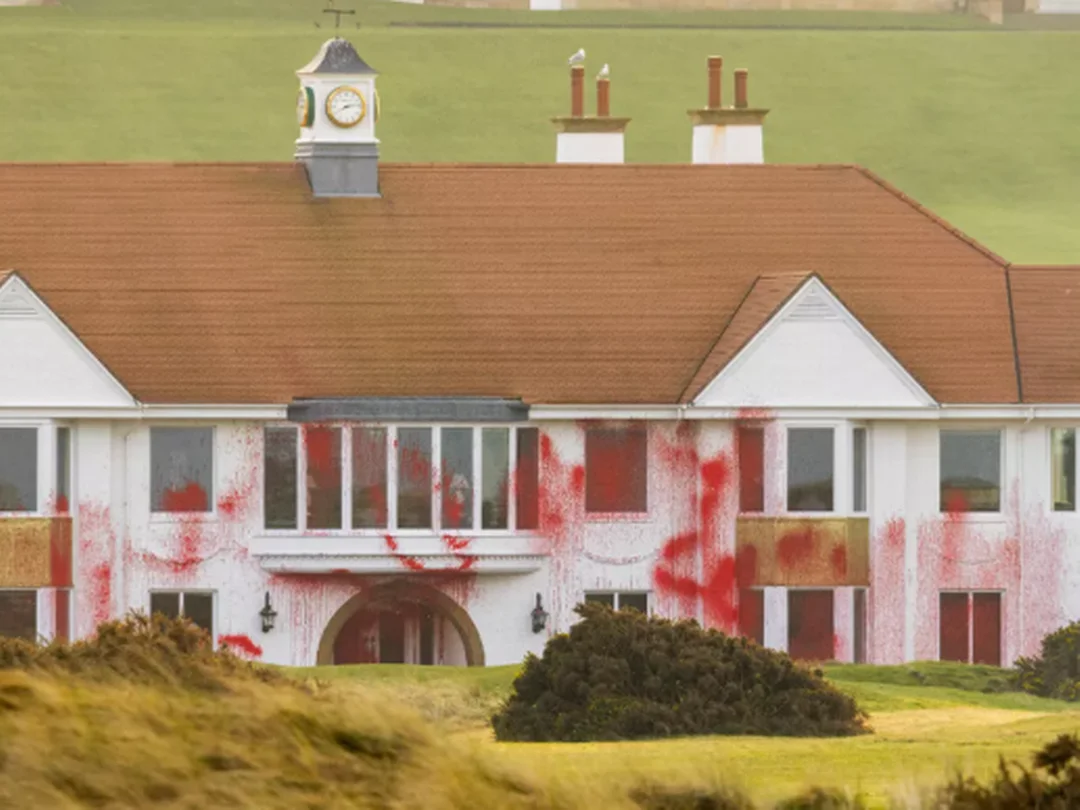
Vandalism at Trump Turnberry: Political Protest or Criminal Mischief?
A string of arrests and court appearances has brought international attention to a series of incidents at Donald Trump's famed Turnberry golf resort in South Ayrshire, Scotland. The controversy, which revolves around politically charged acts of vandalism, spotlights how global geopolitical tensions can spill onto unexpected stages and provoke both legal and public outcry.

On March 8, police responded to multiple acts of vandalism at the Trump Turnberry course. A green was dug up, the phrase "Gaza is not for sale" was painted across the grass, and red paint was splashed across clubhouse buildings and walls. The incidents, executed in the early morning, were allegedly tied to activists protesting Trump's remarks on Gaza, where he suggested turning the territory into a resort similar to the French Riviera, drawing widespread criticism for proposals many viewed as endorsing forcible removal of Palestinians.

The protest appeared carefully orchestrated. Activists from Palestine Action claimed responsibility, emphasizing their opposition to what they described as a plan to “ethnically cleanse Gaza.” The bold act on Trump’s property, a symbol of wealth and American influence, has ignited debate far beyond Scottish borders about the line between political activism and criminal destruction.
The authorities responded swiftly. Within weeks, six people had been arrested in connection with the damage. Most recently, a 21-year-old woman was apprehended in Liverpool and is set to appear before Ayr Sheriff Court. Previous defendants include Ricky Southall, 33, of Wakefield and Uzma Bashir, 55, from Leeds, both of whom made no plea at their hearing and were released on bail. Another co-accused, Kieran Robson, 33, faced similar charges late last month.
Scottish law defines "malicious mischief" as the “willful, wanton, and malicious destruction of, or damage to, the property of another,” typically reserved for cases involving significant harm or disruption. The actions at Turnberry, which caused thousands of pounds in damage and significant disruption to one of Scotland's most famous sporting venues, have met that threshold.
Donald Trump himself weighed in last month, denouncing the protestors as “terrorists” and demanding authorities “treat them harshly.” These statements have become flashpoints for public debate, especially as Trump's rhetoric toward Middle Eastern conflicts remains heavily scrutinized globally.
For many, this incident raises important questions about protest, property, and the effectiveness of civil disobedience in the digital age. As legal proceedings continue and the world watches, attention remains focused not just on those charged, but on the broader issues evoked by the Turnberry vandalism.
Was this a necessary intervention to bring attention to a humanitarian crisis, or a criminal act that crosses the line of acceptable dissent? Readers are invited to share their perspectives below. Where do you draw the line between protest and vandalism, and how should authorities respond?